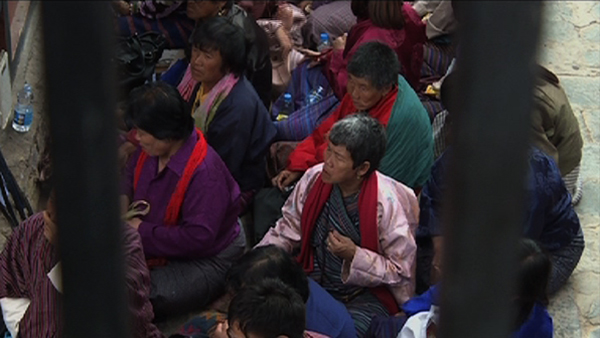 With the increase in the ageing population in the country, the number of dementia cases is on the rise. 2018 saw the highest number of dementia patients with 33 cases as per the 2019 Annual Health Bulletin. The figure increased by 15 from 2017.
With the increase in the ageing population in the country, the number of dementia cases is on the rise. 2018 saw the highest number of dementia patients with 33 cases as per the 2019 Annual Health Bulletin. The figure increased by 15 from 2017.
Dementia is a condition where there is deterioration of the memory, thinking, behaviour and the ability to perform everyday activities. Although dementia mainly affects older people, it is not a normal part of ageing.
The annual health bulletin mentions that the decline in death and fertility rates has resulted in population ageing and rising dependency. The ageing population is expected to grow rapidly over the years thereby putting pressure on the existing health system. Bhutan recorded dementia cases for the first time in 2016 with 21 cases as per the bulletin.
“A lot of people are living beyond 71. So it is not very surprising dementia cases are increasing in Bhutan. We should expect this all over the world. We are not a different species of human beings so if you live longer you have more chances of having dementia. But that’s not to say that all people who become old would become demented but the risk or the incidence rises as you cross certain group especially after 60,” Dr Chencho Dorji, the Psychiatrist of the National Referral Hospital, said.
As per World Health Organisation(WHO), around 50 million people have dementia worldwide. It is one of the major causes of disability and dependency among older people. Early stages of dementia are often overlooked as it gradually develops. Some of the symptoms include forgetfulness, losing track of time and becoming lost in a familiar place. The late stage of dementia is severe and includes symptoms like becoming unaware of time and place, having difficulty recognising relatives and friends, need for increased assisted self-care, difficulty in walking and experiencing behaviour changes that may escalate and include aggression.
“Dementia affects the brain. The brain cell starts dying as we become older obviously. But also some pathological changes happen in the brain as you become older and that leads to memory loss. Basically, your brain starts losing its capacity to function” Dr Chencho Dorji said.
According to new guidelines issued by WHO in May this year, people can, however, reduce the risk of dementia by getting regular exercise, not smoking, avoiding alcohol, controlling weight, eating a healthy diet and maintaining healthy blood pressure, cholesterol and blood sugar levels.
As per a study conducted by the National Statistics Bureau in 2017, elderly people have low access to healthcare services due to their immobility and face problem accessing services in hospitals due to overcrowding. The study suggests that it is crucial to have geriatricians, who can better understand and treat old age diseases for the promotion of healthy ageing.






